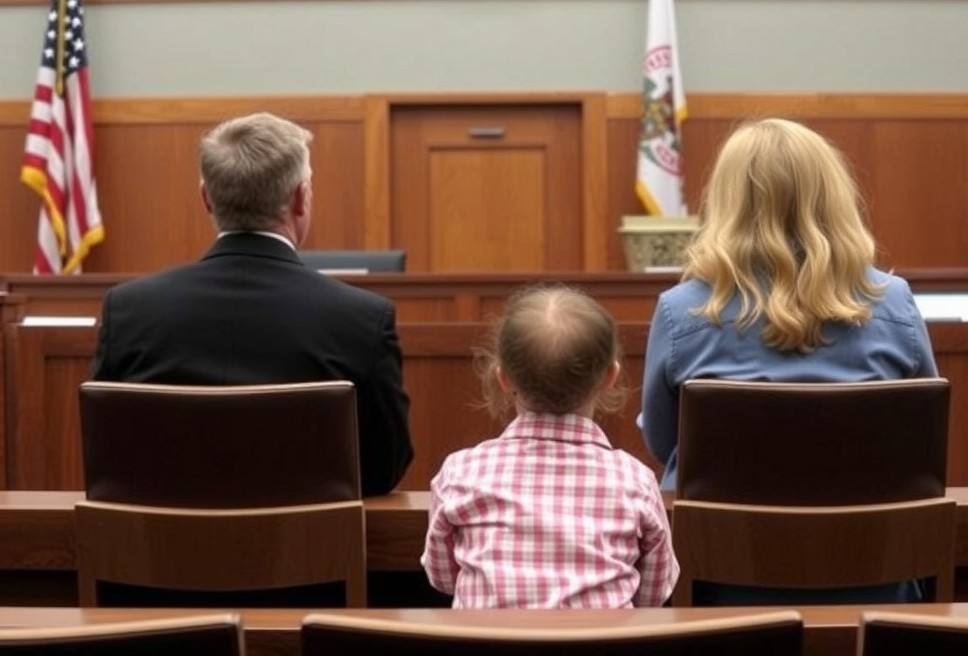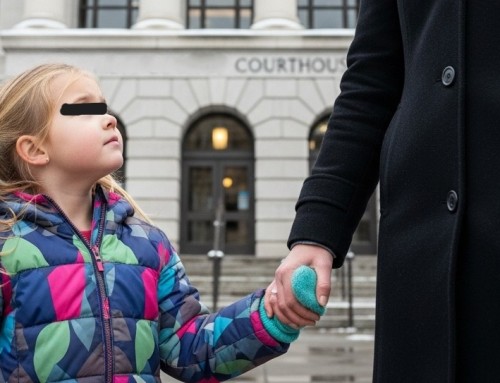How Child Custody Is Determined in Idaho Courts
“I just want what’s best for my kids.”
If you’re walking through a custody case in Idaho, that thought has probably echoed in your mind more than once. It’s the kind of quiet conviction that doesn’t shout but carries weight. At Brown Family Law, we’ve heard it in tearful whispers and determined declarations—every version rooted in love.
Navigating child custody can feel like threading a needle in the dark. The emotions are heavy. The questions are many. And the stakes? They couldn’t be higher. Your child’s day-to-day life, stability, and future are on the line.
The good news is: you don’t have to do it alone. And it helps to understand how Idaho courts actually make these decisions. So, let’s break it down—plainly, compassionately, and with real insight into what’s ahead.
The Foundation: Best Interests of the Child
Idaho courts center every custody decision around a single guiding principle:
What serves the best interests of the child?
That’s not just a catchphrase—it’s the cornerstone of family law in Idaho. Every judge is required to weigh this idea when evaluating custody arrangements. And while it sounds simple, it’s layered with complexity.
Let’s unpack what it really means.
The court considers a variety of factors when determining what’s in a child’s best interest, including:
- The child’s relationship with each parent
Is there a bond of trust? Who does the child turn to for comfort, help, or everyday needs? - Each parent’s ability to meet the child’s needs
Emotional support, stability, access to health care, education—these all matter. - The child’s adjustment to home, school, and community
Courts want to minimize disruption, especially in situations where a child has strong ties to their environment. - Any history of abuse, neglect, or substance use
Safety comes first. Always. - The child’s wishes (if they’re mature enough)
In Idaho, while there’s no set age, the court may consider the child’s preferences if they’re deemed mature and able to articulate thoughtful reasons.
These considerations aren’t about scoring points—they’re about creating the most stable and loving environment for a child to thrive.
For a full list of how courts evaluate these decisions, you can visit the Idaho Statutes – Title 32, Chapter 7.
Legal Custody vs. Physical Custody
Here’s where things can get a little confusing, especially if you’re hearing new legal terminology for the first time.
In Idaho, custody is split into two types:
- Legal Custody – This refers to decision-making authority. Who decides where your child goes to school? What about medical care? Religious upbringing? Legal custody answers those questions. It can be joint (shared by both parents) or sole (granted to one parent).
- Physical Custody – This refers to where the child lives. Again, it can be joint or sole, and it determines who handles the day-to-day parenting.
For example, a court might award joint legal custody—meaning both parents have input on big decisions—but give one parent primary physical custody because the other travels frequently for work. These are flexible tools, not one-size-fits-all rulings.
To understand more about the legal definitions, check out our Divorce FAQs section, where we break down common custody terms.
Joint Custody in Idaho: A Balanced Approach
Many parents ask us: “Will we get 50/50 custody?”
The answer? It depends.
Idaho law supports joint custody when it’s in the child’s best interest. But that doesn’t always mean a perfect 50/50 split. Life is messy, and the court knows that. Judges look at school schedules, work commitments, living arrangements, and even a child’s personality and temperament.
For example, if one parent lives closer to the child’s school and has a more predictable routine, they may receive more physical custody time—even though both parents share legal custody.
That said, the court encourages co-parenting and often looks favorably on parents who can communicate respectfully and put the child’s needs first. Judges appreciate teamwork.
Parenting Plans: The Blueprint for Your Family’s Future
One of the most important parts of a custody case is the parenting plan. Think of it like the instruction manual for co-parenting after separation.
A parenting plan outlines:
- Where the child will live
- Visitation schedules
- Holiday and vacation arrangements
- Transportation logistics
- Communication guidelines between parents
- Protocols for making major decisions
Idaho courts require this plan to be specific, clear, and focused on the child’s needs. The more detailed it is, the less chance of future conflict.
Here’s a tip from years of working with parents: when crafting your plan, think long-term. Don’t just focus on surviving the next six months. Ask yourself, How do we build a routine that helps our child feel safe and loved for years to come?
Need help drafting a strong plan? Our child custody attorneys can guide you through the legal and emotional steps involved.
When Custody Disputes Arise
Of course, not every custody case unfolds smoothly. Sometimes, things get complicated. Deep disagreements, fears about the other parent’s behavior, or even concerns about a child’s safety can bring intense conflict into the courtroom.
In these cases, Idaho courts may appoint a guardian ad litem—a neutral third party who investigates and represents the child’s interests. This person might interview parents, teachers, doctors, and the child, and then submit a report to the court.
Other times, the court may require parents to undergo custody evaluations or attend mediation before making final decisions.
During disputes:
- Stay calm, even when it’s hard.
- Document everything (texts, school attendance, appointments).
- Avoid speaking negatively about the other parent in front of your child.
- Show consistency and reliability—judges notice.
And remember: even in the messiness of conflict, the focus stays on the child.
Can a Custody Order Be Changed Later?
Yes. Idaho courts understand that life changes.
Maybe one parent needs to relocate for work. Maybe a teenager expresses strong feelings about where they want to live. Or maybe a parent’s circumstances—positive or negative—have changed substantially.
In those cases, you can petition the court for a modification of the custody order. But you’ll need to demonstrate a material change in circumstances and explain why the new arrangement better serves your child’s best interests.
These aren’t decisions the court takes lightly—but they are possible, especially when rooted in thoughtful, child-centered reasoning.
For more on modifications and post-divorce legal options, visit our Divorce Services page.
National Perspective: Custody Trends in the U.S.
While Idaho has its own unique legal standards, it’s worth noting broader trends across the country:
- According to the U.S. Census Bureau, about 21.9 million children in the U.S. lived with one parent in 2020, often as a result of divorce or separation.
- Of those, around 16% had joint physical custody arrangements, a figure that continues to grow as courts recognize the value of shared parenting—when safe and appropriate.
Idaho is part of that shift, aiming for collaborative, child-focused solutions whenever possible.
Your Role as a Parent: More Than Just Legal
Here’s the part that’s not always talked about in court—but makes all the difference.
You are your child’s anchor in a season of change. Whether you’re seeking joint custody or sole custody, whether you’re amicable with your co-parent or dealing with conflict, your child is watching. And feeling.
So:
- Keep showing up.
- Tuck them in. Make breakfast. Ask about their day.
- Be present, not perfect.
- Protect their emotional space—even when yours feels shattered.
Custody isn’t just a legal process. It’s a personal one. The choices you make now shape the story your child tells themselves about love, stability, and resilience.
You Don’t Have to Do This Alone
Child custody decisions can be overwhelming. At times, even scary. But here’s the truth: you don’t have to figure it all out by yourself.
At Brown Family Law, we help Idaho families walk through the hard parts of family law with clarity, compassion, and real experience. We’ve worked with hundreds of parents—from those just starting to those deep in a battle—and we know how to protect what matters most.
If you’re facing a custody decision, have questions about your rights, or just need someone to help you see the road ahead, we’re here.
Call us today at (208) 987-7005 or schedule a consultation. We’ll listen, we’ll guide, and we’ll help you move forward—with heart and with strength.








